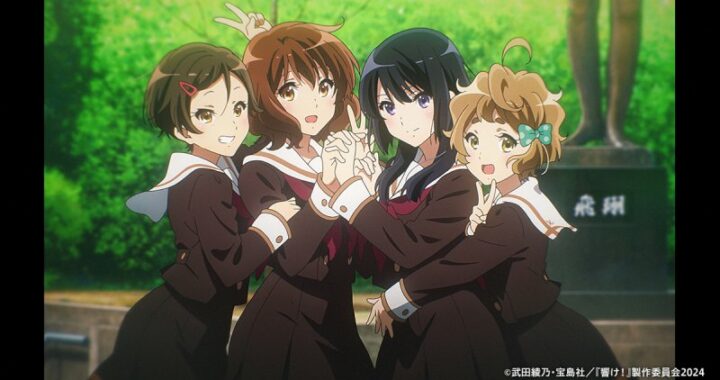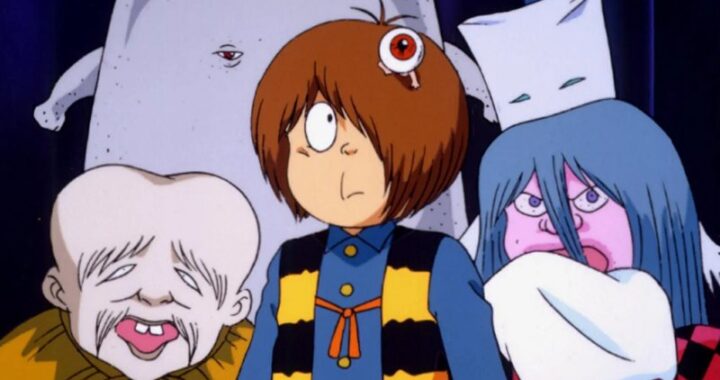 ”A loner is sort of like a permanently neutral country. Your absence prevents discord, and you don’t get dragged into trouble.”
”A loner is sort of like a permanently neutral country. Your absence prevents discord, and you don’t get dragged into trouble.”
Creative Staff:
Story: Wataru Watari
Art: Ponkan8
Translation: Jennifer Ward
What They Say:
When reputations are threatened, loners alone have no fear.
Hachiman Hikigaya’s life has changed little since being forced to join the Service Club. Sure, he now spends his time after school in the company of the icy Yukino Yukinoshita and bubbly airhead Yui Yuigahama, but his warped personality still ensures that he won’t wring a moment’s enjoyment from his insufferable school life. When someone starts trolling his class with hateful e-mails, though, and the Service Club is enlisted to help solve the case, Hachiman’s “unique” perspective as an outsider might finally come in handy…or he could still just be a loser.
The Review:
Content: (please note that content portions of a review may contain spoilers)
When writing a story, it’s easiest to tell everything in an enclosed manner—keeping the world and story as self-contained as possible to keep the focus tight and direction linear. In the case that authors try to experiment with venturing outside of this process, the major benefit would be a richer, more realistic world with interactions that feel equally authentic—you as the reader can surmise the world itself continuing even when you stop reading. For example, it can be entertaining to read about characters eating lunch together, but to think that they’re on familiar enough terms that eating together even when the author doesn’t mention such somehow feels that much more entertaining. In this manner, author Wataru Watari expands upon his previous volume of Oregairu, to some generally positive results.
This latest novel in the misadventures of high schoolers is split into two major stories, with a third one being slightly interwoven between the two, having been set up at the start of the first volume. And while the two major stories this volume follow the same general formula as before, the formula itself has yet to outstay its welcome. Having a student ask the Service Club to solve a problem ultimately ending in main character Hachiman saving the day at the expense of further ruining his own social status remains as entertaining as it’s ever been (though the occasional fanservice and sister-complex moments I could have done without). With popular-guy Hayama appealing to the Service Club at the start of the volume, it’s interesting to note how his status means nothing to the oddball trio of Hachiman, Yukinoshita and Yuigahama. Likewise, it’s the group’s social neutral-ness in the following story dealing with (apparent) nice-girl-turned-delinquent Kawasaki that eventually leads to the gang resolving the problem.
But it’s in this volume’s differences with its previous entry that things begin to get a bit dicey. In both stories covered, the pacing gets notably broken up with some moments not wholly related to the direct plot whatsoever. Bits like the trio being forced into a maid café at the behest of cringe-worthy classmate Zaimokuza, or Hachiman lounging about at home with his sister, while entertaining in their own right do feel like they could have been better worked into the story. It’s in their inclusion, though, that you’re able to see the characters more as real people interacting with each other rather than made-up people with a specific directive to the story. They don’t even necessarily enjoy each other’s presence, but it’s in demonstrating this clear “acquaintance-ship” between the cast that author Watari’s prose really shines. Finishing off the volume with a throwback to a key moment only slightly explained the first volume further demonstrates this—Watari clearly getting comfortable letting the small Oregairu world begin to stretch its legs.
In Summary:
Both the problem and appeal of Oregairu volume 2 is the meandering pace it occasionally gets itself into. But while such scenes slow down the story significantly, they also help further flesh out the world and its characters, making them that much more relatable. While Watari’s first volume was very self-contained, he’s clearly gotten more comfortable expanding on his world and story this time around—leaving plot threads dangling to be resolved at later points, and having his cast similarly meander aimlessly in a way that ultimately benefits them as characters.
Content Grade: B
Art Grade: B
Packaging Grade: B
Text/Translation Grade: A
Age Rating: 13+
Released By: Yen On
Release Date: May 23, 2017
MSRP: $14.00




